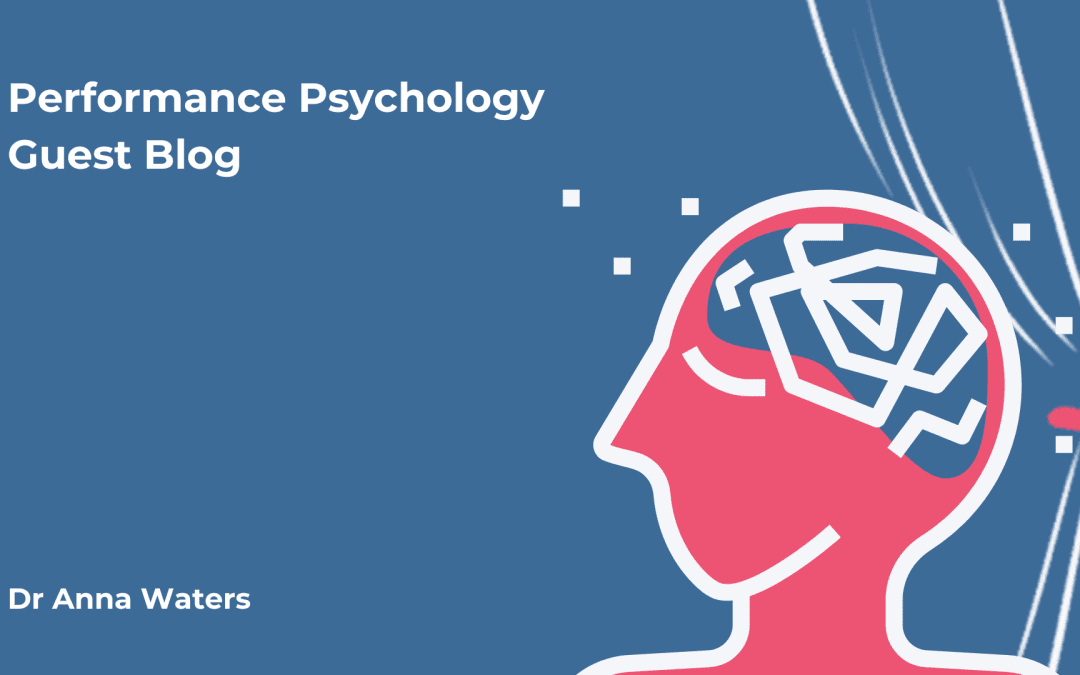Did you know that strategies for meeting the psychological demands of your rehearsal schedule, expectations, and performances can also help you avoid physical injury? Our guest blog from Dr Anna Waters this month looks at the role of Performance Psychology in injury prevention.
How often do you worry about getting injured? As a performer, you may be thinking quite a lot, actually. How much time do you spend each day, trying to minimise your risk of injury?
Injuries for performing artists are not just the result of a physical strain or trauma, they have a psychological component too. In fact, there is a strong relationship between psychological factors and injury occurrence. Our thoughts, feelings and mindset, have a big impact on how we perform and can be hugely important in preventing injuries.
Researchers in the world of elite sport, have found plenty of evidence to suggest that performers with high levels of stress, anxiety, or low self-esteem, may be more at risk of injury than those with lower levels. It has also been found that psychological interventions, including, stress management techniques, cognitive restructuring, mindfulness, imagery and seeking social support, can be highly effective in lowering injury risk.
So, what does all this mean to you as a performing artist? Well, the research indicates similar results with performing artists. If you are struggling to meet the demands of your rehearsal schedule, expectations, or performances, then you could be putting yourself at higher risk of injury.
Psychological influencers of injury risk
Stress and anxiety: the relationship between stress and injury occurrence has been shown in both the sporting and performing arts worlds. Performers with higher stress are likely to experience more injuries than those with less stress in their lives. One of the explanations for this relationship, is that the stress and anxiety can impact a performer’s attention, meaning that they may miss important environmental clues, leading to an accident, or over exertion.
Stress and anxiety can be accompanied by increased muscle tension that interferes with normal coordination and may increase the chance of injury, while practising and performing.
Personality factors: Perfectionism, or a high need for achievement, can lead performers to push themselves beyond their limits. Striving for the perfect performance can sometimes result in overtraining, inadequate rest and injuries.
Perfectionistic concerns such as worrying about fears of being evaluated negatively by others, and feeling anxious about the gap between expectations and current level of performance, have been found to relate to injury risk.
Prevention through performance psychology
- Manage your stress levels – Your overall stress is an accumulation of stress across all areas of your life. Remember, when stress levels are high, you will be more vulnerable to injury.
- Be prepared – If you know you have a potentially stressful time coming up (e.g., an important gig, an audition, an exam, a new contract), take time to think about how you can reduce stress in other areas of your life to compensate.
- When big life events happen – take time to deal with them and decrease your stress in other areas. You could do things like reduce your practice time, postpone an audition, get help in preparing for a performance, get a massage, ask someone to cook a nice meal for you, always have an early night where possible.
- Stress reduction techniques – learning techniques such as meditation, deep breathing exercises, and visualisation can help keep you focused under pressure and reduce the probability of injury-inducing distractions.
- Set goals around practising and performance – setting realistic goals and attainable objectives for your practice time and performance can reduce the risk of injury due to self-doubt, or fear. This can also help manage perfectionism tendencies.
- Positive self-talk – reflect on what you say to yourself during preparation and performance. Replacing negative thoughts with positive, encouraging self-talk can improve your self-esteem and confidence.
For those working with performing artists – Think about the environment you create for creators and performers to study/work/practise in. Does it encourage participants to discuss and raise concerns about things they are finding stressful, the demands of their role, or worries about potential injuries? How might you start to facilitate this moving forwards?
For more tips and actionable skills for Physical Health and Injury Prevention, why not join BAPAM’s free webinar with Performance Physiotherapist, Drusilla Redman? Sign up now for this session which takes place on 8th March.
–
With over 20 years expertise supporting the performance and mental health of performing artists and athletes, Dr Anna Waters has been fortunate to work with prominent classical musicians, opera singers, ballet dancers, recording artists, stand-up comedians and actors. She has enjoyed working with national music conservatories, ballet companies and television companies.
Anna loves drawing on her experience of both the performing arts and sporting worlds to help facilitate her work with her clients. She believes that there are many similarities between both arenas, with performers being talented and ambitious people, whose lives are spent working towards big events. Where each day is filled with training, practice, and preparation for the next big event, where they are required to consistently deliver their best performance under the scrutiny of the world.
With a strong academic background, including a PhD in applied sport psychology, Anna spent seven years working alongside Professor Steve Peters sharing The Chimp Model ideologies. This combined with her sport psychology backgrounds forms foundations to her work.
Anna is a Chartered member and Associate Fellow of the British Psychological Society and is registered as a practitioner with British Association for Performing Arts Medicine (BAPAM).
–
Related Resources
BAPAM Healthy Practice Training Webinars: Our FREE expert-led sessions for artists, creators and professionals are designed to equip you with essential techniques and strategies to sustain creative practice and prevent physical and mental health problems
BAPAM’s free health information resources are grounded in research, evidence and best practice. Find actionable tips on Managing Performance Anxiety and Psychological Self-Care plus a range of health resources to support sustainable creativity.


